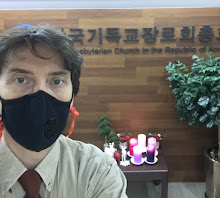For the past few
months I’ve been focused on learning Korean, first at the Green Language School
and now at Yonsei University, so I feel compelled to make a few comments at this
point about the frustrations (and joys) of learning this language.
First off, let me say
something positive. Before the middle of the fifteenth century, Koreans used
Chinese characters in their writing, something that was not always a good fit
with the Korean language. But thanks to King Sejong, who instituted Hangul in
1446, Koreans have the most logical alphabet in the world with which to express
themselves. Without it, learning Korean would be that much harder. So let me
start off by saying, thank you, King Sejong!
Now for the
frustrations. I've been at it for almost four months and i feel like I'm just
about as confused now as I was on day one, perhaps even more so.
For one thing, there are two words for everything in Korean: one Chinese and one native Korean. This makes for much confusion! There are even two counting systems—one for counting things and one for numbers. It's a bit like the difference between cardinal numbers and ordinal numbers in English, except not really. Anyway, this means that I run out of memory storage twice as quickly.
For one thing, there are two words for everything in Korean: one Chinese and one native Korean. This makes for much confusion! There are even two counting systems—one for counting things and one for numbers. It's a bit like the difference between cardinal numbers and ordinal numbers in English, except not really. Anyway, this means that I run out of memory storage twice as quickly.
Korean is a bit of a
hybrid language, in the way that it is able to absorb foreign influences so
readily. I think this is a legacy of Korea’s location between Chinese and
Japanese civilizations. But you can also see it in the way that English words
get absorbed into the language as well. Anyone for a haembogo?
One of the patterns
that is really obvious to me as an outsider is the way that social
relationships are embedded in the structure of the language. (This is true of
English as well of course, but as an insider I’m not able to see it.) For
example, the forms of the verbs depend a great deal on who the speaker is
speaking to, as well as whom the speaker is speaking about. By comparison
English is enormously lacking in subtlety. Whenever the conversation shifts
from Korean to English—and I’m afraid this happens a lot when I'm around—it
feels to me like I’m making people walk around with no clothes on. What is
going on here is so much more than just shifting from one language to another:
the terms of the social interaction are being shifted as well, on multiple levels.
The main source of my
frustration is that the structure of Korean is so different from English. The
most obvious indication of this is that the verb appear at the end of the
sentence. This is a challenge for me because whenever I go to say anything, it
is always the verb idea that comes into my mind first, but I have to put it on
hold while I formulate all the other little bits and pieces, and by the time
I’ve done that, I’ve usually forgotten what I was wanting to say in the first
place. Because I perceive this to be a structural thing, it makes sense to me
that I am confused all the time here. And as time goes by and I start to adjust
to this pattern, instead of getting clearer my mind just seems to get more
permanently confused!
What I noticed when I
first arrived, what was really noticeable to me all the time, were all the
differences. Then, as I started to settle in and adjust to the new environment,
I started becoming aware of how superficial all those obvious differences
are—after all, people are just people, wherever you go. But at the same time, I
became more and more aware of how important it is for me to learn the language.
One can get by in Korea using English quite all right. It complicates life for
sure, but one can get along. But if you really want to connect with people, if
you really want to engage with the culture, its people, their struggles, their
history, their aspirations, and the dynamics of their society and culture, then
you really do need to know some of the language. This is where I’m at now.
After nearly two months +++ of intense language study, I feel like I’m on the verge
of a breakthrough, but then it keeps evaporating. Yet each time that feeling
comes around, it keeps coming back stronger.
Fortunately it’s not
all hard work. The learning process has its fun moments too.
One more thing: for
all you former Koine Greek students of mine out there who miss those lovely
contract verbs, have I ever found a language for you!
 |
| Yonsei KLI students enjoying the process of learning Korean |





Comments
Post a Comment